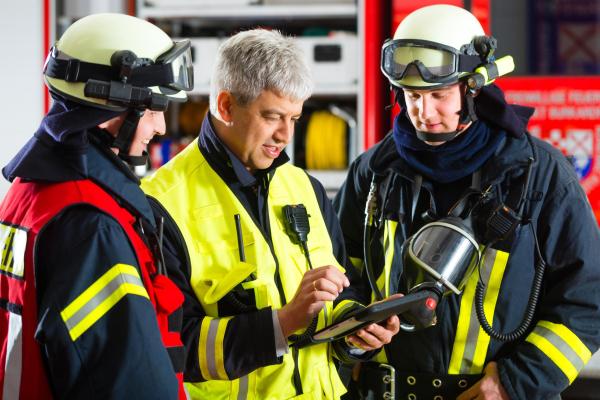Local Government Act 2020
Local Government in Victoria is administered under the Local Government Act 2020, which provides a framework for the establishment and operation of councils.
The Act is the main legislative instrument for Victoria's seventy-nine councils.
Part 1A of the Local Government Act contains the Local Government Charter, which describes the purpose, objectives and functions of council.
In addition to these matters, the Local Government Act also includes provisions for:
- entitlements for residents and ratepayers to vote in council elections
- the conduct of local council elections, nominations and vote counting
- independent Electoral Representation Reviews by an electoral commission
- council governance requirements, including codes of conduct and disclosure of conflicts of interest
- council decision making, including records of meetings, confidentiality and limits on decisions during election periods
- levying and payment of council rates and charges
- preparation of Council Plans, budgets and annual reports
- council's powers to make and enforce local laws.
Community Local Law
Manningham’s Community Local Law 2023 is a local law made under Part 3 of the Local Government Act 2020 and section 42 of the Domestic Animals Act 1994.
This Local Law is made in recognition of Manningham’s Generation 2030 Community Plan and the Council Plan, which, as Council’s overarching strategic documents, provide a long-term shared vision for Manningham and the community by guiding the development of policy and strategies.
Freedom of Information
Find out what information you can request and how in accordance with the Freedom of Information Act 1982 (FOI Act).
Request now
Information Privacy
Manningham City Council and its service providers value the privacy of every individual's personal information.
Council is committed to protecting the information it collects and uses by compliance with its obligations under the Privacy and Data Protection Act 2014. To review Council’s privacy statement and policies, please visit Manningham Council's Privacy Policy.
Human Rights Charter
The Victorian Charter of Human Rights and Responsibilities Act 2006 is a law that protects the human rights of all people in Victoria.
The Charter requires all public authorities and their employees to act compatibly with human rights in the delivery of services and when making decisions.
Manningham City Council recognises and respects that everyone has the same human rights entitlement to allow them to participate in, and contribute to, society and our community. We recognise that all persons have equal rights in the provision of, and access to, Council services and facilities. We also recognise that, at times, such rights may be limited, insofar as to strike a balance between individual rights and the protection of public interest.
The Charter complements other laws such the Equal Opportunity legislation and protects rights such as freedom of speech, freedom from forced work and freedom from degrading treatment which previously had no legal protection. The Charter sets out a list of twenty rights that assist all people to live with freedom, respect, equality and dignity.
For more information:
Fraud and Corruption Control
Council is the custodian of significant public funds and assets therefore it is important that the community has assurance that these are adequately protected.
In December 2022, Council approved the Manningham Council Fraud and Corruption Policy.
The Policy sets out specific guidelines and responsibilities regarding appropriate actions that must be followed for the investigation of fraud and corruption and other similar irregularities.
The Policy should be read together with the Manningham Risk Management Strategy and relevant legislation.
Public Interest Disclosures Procedures
The Public Interest Disclosures Act 2012 (the Act) facilitates the making of public interest disclosures about improper conduct within the public sector without fear of reprisal. The Act aims to ensure openness and accountability by encouraging people to make disclosures and protecting them when they do.
Manningham is committed to the aims and objectives of the Act and encourages the making of disclosures about improper conduct. Council will not tolerate improper conduct by the organisation, its workers or Councillors nor the taking of reprisals against anyone who discloses such conduct.
What is a public interest disclosure?
Public Interest Disclosures (PID) are reports about:
- Improper conduct of public bodies or public officers (such as corrupt conduct).
- Detrimental action that a public body or public officer has taken against a person in reprisal for them (or another person) having made a PID or cooperating with the investigation of a PID.
A person making a disclosure must believe, on reasonable grounds, that the Council, worker or Councillor has engaged in, or proposes to engage in, improper conduct.
How do I make a public interest disclosure?
A PID may only be made by a natural person or a group of people making a joint disclosure. A PID cannot be made by a company or organisation.
We can only address disclosures that relate to Manningham City Council and its workers. A person making a disclosure can do so by contacting Council or the Independent Broad-based Anti-Corruption Commission (IBAC).
Council recommends that a written disclosure is sealed in an envelope and clearly marked:
If your disclosure is about a Councillor, your disclosure must be made to the IBAC or the Victorian Ombudsman.
How will Manningham protect me if I make a disclosure?
Manningham will take all reasonable steps to protect a person who makes a public interest disclosure. All correspondence, phone calls and emails from a discloser will be referred to the Public Interest Disclosure Coordinator.
The Public Interest Disclosure Coordinator will take all necessary steps to ensure that the identity of the discloser and the person who is the subject of the disclosure are kept confidential. Where appropriate welfare support will also be provided.
Who can I contact if I am thinking about making a public interest disclosure?
Anyone considering making a disclosure is encouraged to read Manningham’s Public Interest Disclosure Procedures on this page. The procedures will guide you through the process and help you understand how to make a disclosure and activate the protections available under the Act.
Disclosures to Manningham Council
Disclosures to Manningham should be made confidentially to the Public Interest Disclosure Coordinator or to one of the Public Interest Disclosure Officers listed below:
- Andrew McMaster, Public Interest Disclosure Coordinator, telephone 9840 9360
- Kerryn Paterson, Director Experience and Capability, telephone 9840 9201
- Carrie Bruce, Senior Governance Lead, telephone 9840 9210
- Vicki Miller, Risk and Assurance Lead, telephone 9840 9204
Disclosures to the IBAC
Disclosures can also be made directly to the IBAC.
Disclosures about Councillors
Disclosures about Councillors must be made directly to the Victorian Ombudsman
Alternatives to making a public interest disclosure
The Public Interest Disclosures Procedures are designed to complement normal methods of submitting a complaint to Council and existing communication channels between workers and line managers. If your complaint does not meet the threshold of a public interest disclosure, it will be referred through to the appropriate person for action.
Need more information?
You can find more information about public interest disclosures in the Guidelines for handling public interest disclosures on the IBAC website.
Manningham’s Public Interest Disclosures Procedures have been prepared in accordance with these guidelines and advice from the IBAC.
Please contact the Council’s Protected Disclosure Coordinator on 9840 9360 for further information or a confidential discussion. Advice can also be received from IBAC on a confidential basis.






